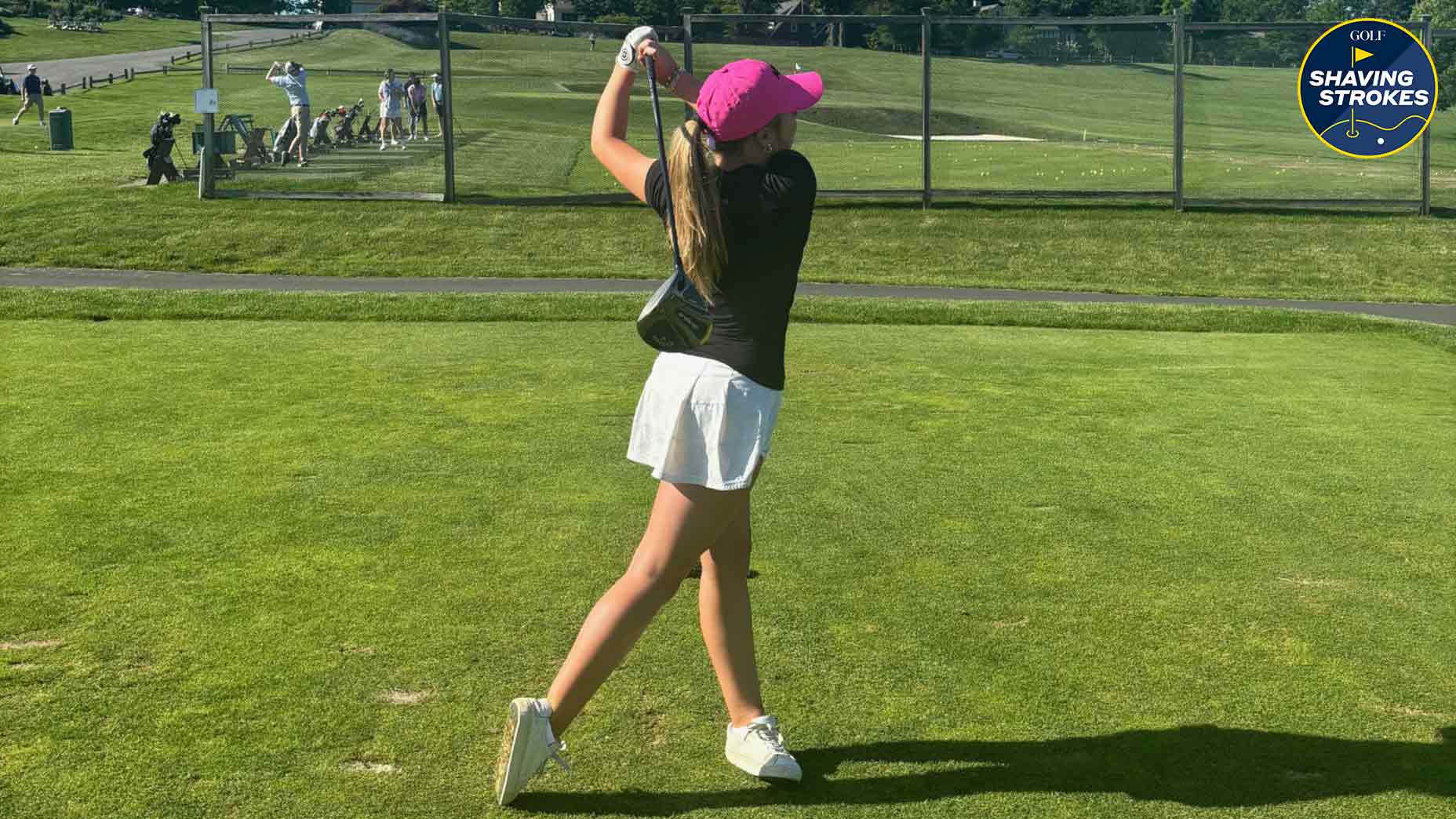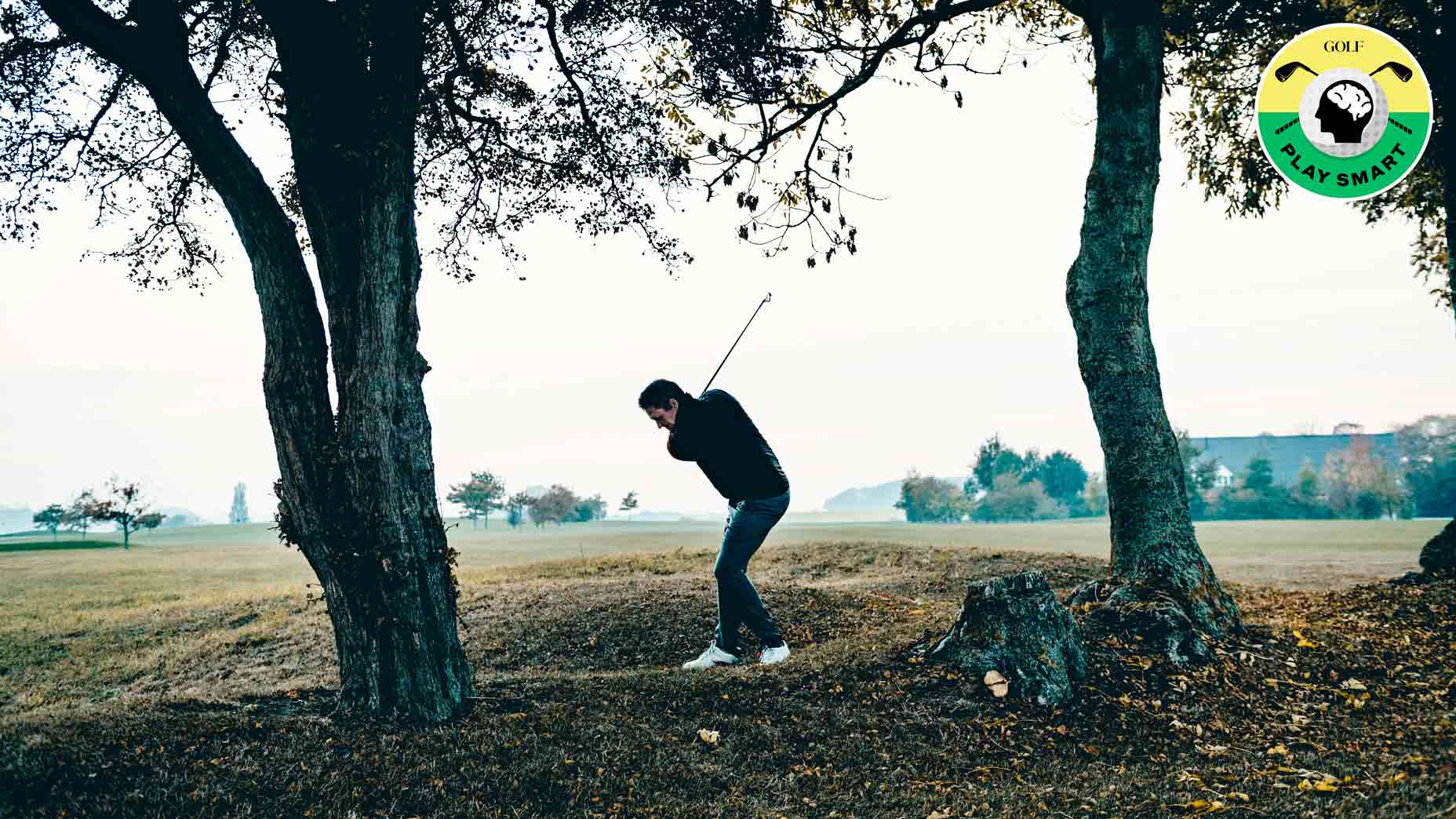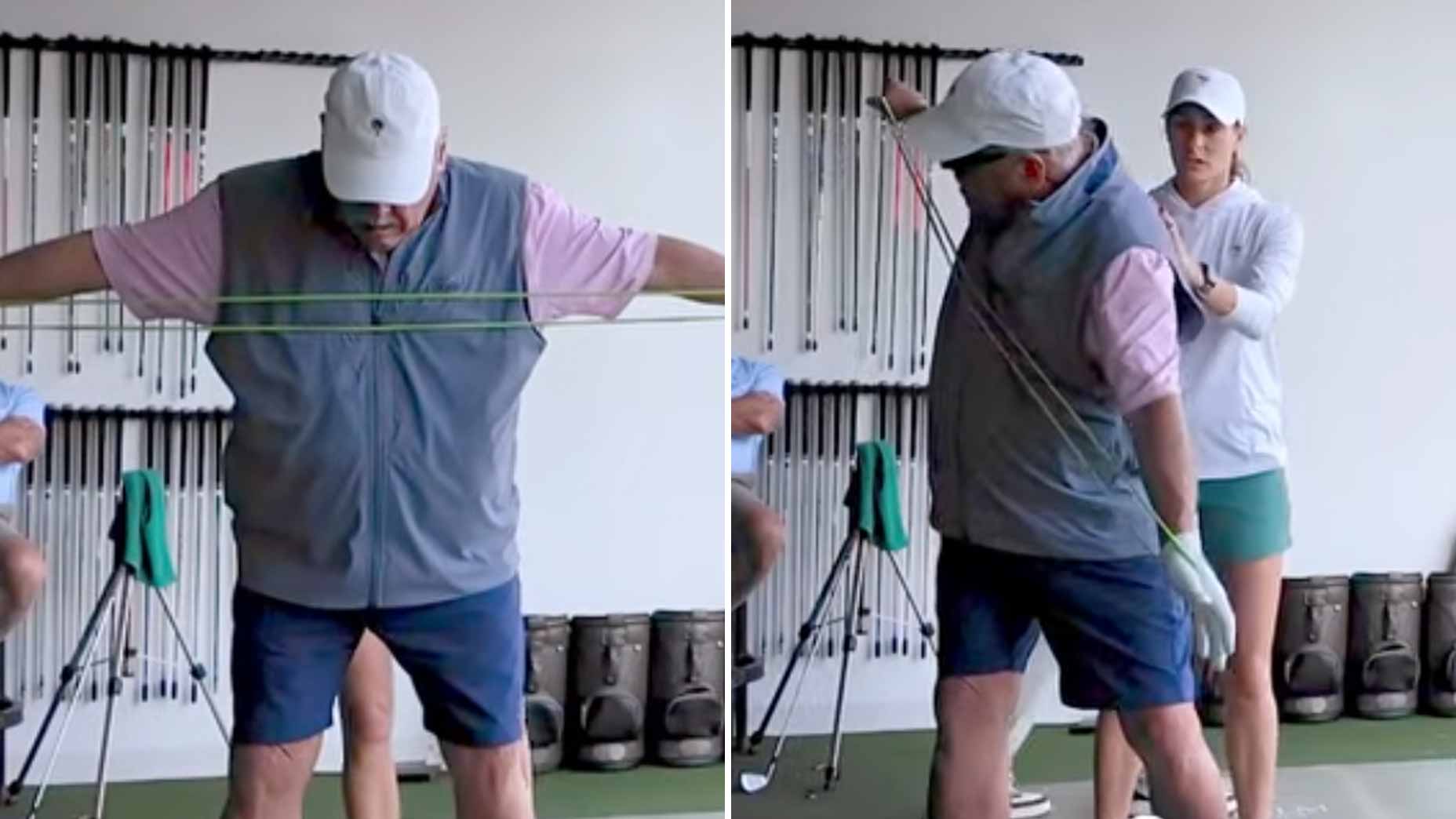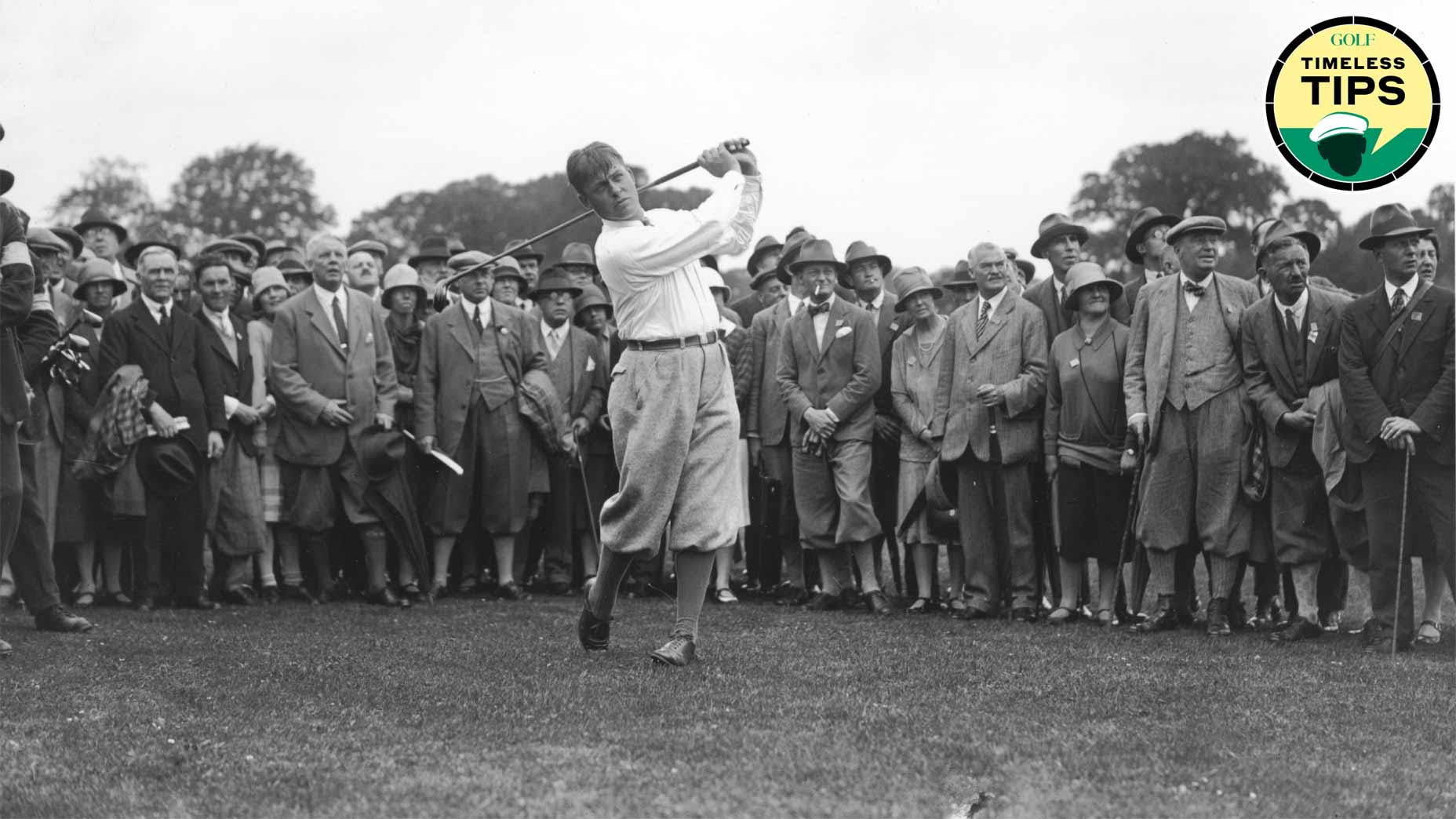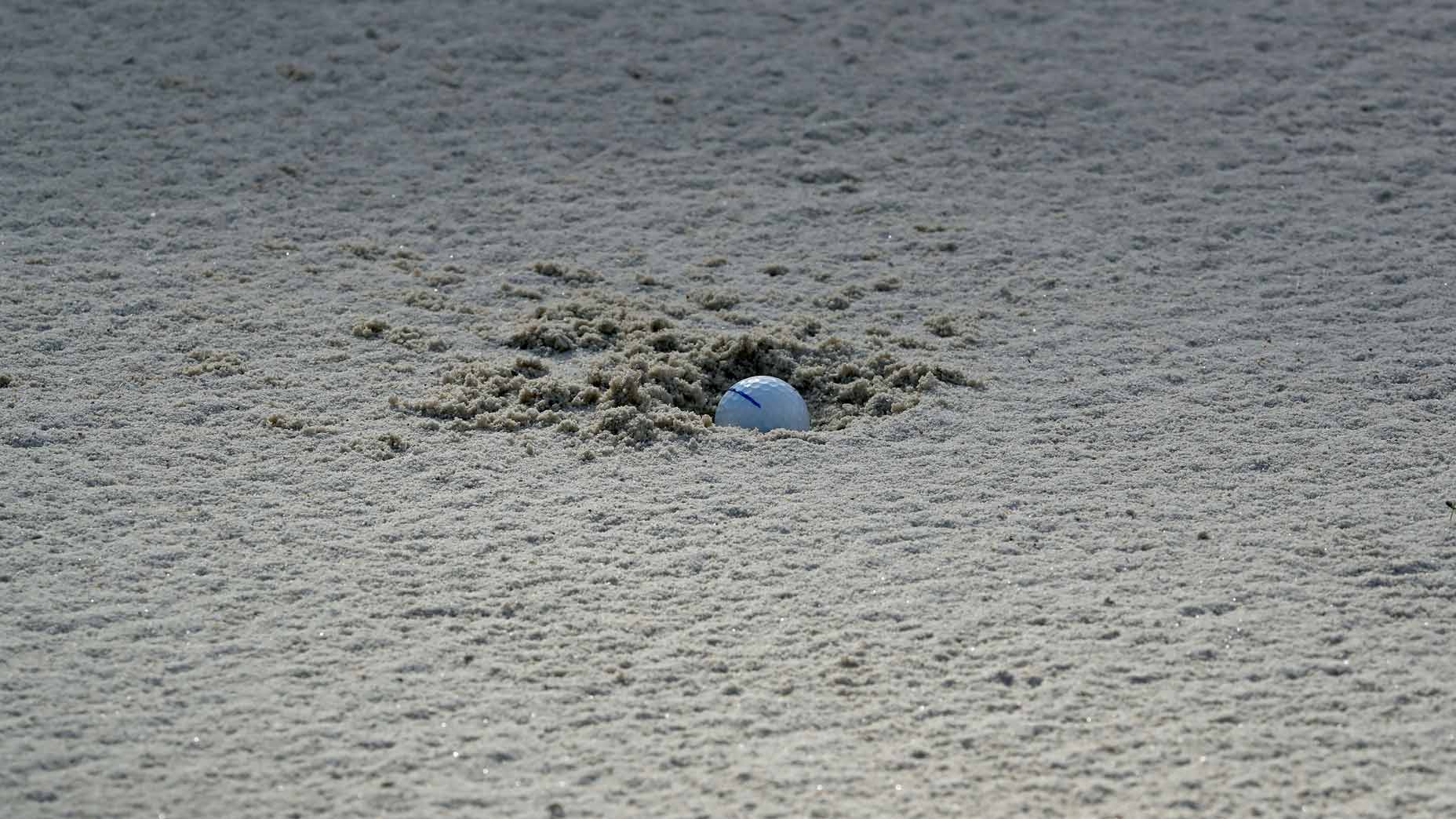Welcome to Shaving Strokes, a GOLF.com series in which we’re sharing improvements, learnings and takeaways from amateur golfers just like you — including some of the speed bumps and challenges they faced along the way.
If there’s one thing every player experiences, it’s some sort of golf anxiety.
But unlike working on fixing a slice or learning how to stop chunking wedge shots for hours at the range, the mental part of the game can eat you up and lead you down a dark path. Those first two issues are much more curable — and generally won’t cause a person to give up playing golf for good.
There are numerous stories about pro players who lost their mojo due to mental issues. Whether it was the pressure to keep their PGA Tour card, or simply getting caught up in performance anxiety and being judged by others, there are certainly different levels of golf anxiety.
How anxiety negatively impacts your golf score, per a sports performance coachBy: Brendon R. Elliott, PGA Golf Professional , Nick Dimengo
Every golfer expects to play their best and shoot low each time they tee it up. Unfortunately, that’s not how golf works (unless your name’s Scottie Scheffler), so understanding how to control your emotions and stick to a plan when things don’t go right is a key differentiator between good, bad, and great players.
GOLF Top 100 Teacher John Dunigan recently shared an example with me.
Dunigan works with all levels of players, and one of his current students is a high school girl who was hoping to make her school’s golf team — and she was a nervous wreck leading up to tryouts.
While she had the physical skills to compete and earn her spot, Dunigan needed to reboot her mental game, giving her tips on how to manage her golf anxiety and play her best regardless of the circumstances. Below, Dunigan shares the four tricks he used to help his student — which are easy exercises to use for the next time you’re in a mental rut on the golf course.

True Spec Fitting
4 tricks this high-school golfer used to manage her golf anxiety
During a recent session with one of my students, I noticed how upset my student was getting as we worked together. Tryouts for her high school team were coming up the next day, and she had all sorts of golf anxiety and nerves. Like, really big nerves.
Her discomfort was obvious, and as we talked about what was going on, she actually came over to me and began crying on my shoulder. Heartbreaking, yes, but it’s also part of the job as a golf coach.
This young girl’s mental game was a mess, and we needed to work on tightening it up in order to overcome any nerves to play her best — especially with golf tryouts starting the next day.
As I comforted her, I gave her the following four mental tricks that can help any player during those tough times.
Channel your nerves as excitement
After clearing her mind and venting a bit, we talked about how nerves (or what I like to call excitement) are your brain’s way of getting ready for action. Your brain is simply helping you pay attention — so nerves are a good, if not an important phenomenon, and should be embraced rather than avoided.
This is when I gave her my roller coaster analogy.
Why do people like roller coasters? They’re exhilarating, they’re fast, they’re fun, and can be a little scary. Well, that’s golf — a roller coaster, so get on!
Like riding on a roller coaster at an amusement park, golfers need to channel their nerves and focus on what they can control. In this particular case, it’s about the shot you’re hitting, and the steps you can go through to prepare yourself for a good outcome. Oftentimes, this includes using helpful self-talk to get ourselves into the proper mindset, helping us relax before addressing the ball.
Embrace possibilities
I hate to break this to you, but you don’t really control the outcome in golf. Sure, you can go through your pre-shot routine and try to manage things as best as you can, but what happens after that is out of your hands.
This is something I had to remind this student of mine, telling her how she could play great today, but then struggle tomorrow. You just have to accept this as reality, since it’s the nature of the game.
Sure, you have influence on the score or on a particular shot, but you don’t have absolute control over it. Accept that and just try your best.
In a golf slump? Try these 3 strategies to master the comebackBy: Dr. Alison Curdt , Nick Dimengo
Here’s where I told her about the power of possibilities.
Today might not go your way, but it also might go your way! If you focus on your process and playing each shot, then that means you’re giving your best effort and focusing on the moment — not on a bad tee shot or a poor score on the previous hole.
Every hole offers a new set of possibilities, regardless of how you’re playing that day. You can’t control the outcome, but you can control your mental approach and the steps to play the best you can. So let go of your scorecard and don’t worry about missing the shot. Just embrace the opportunity.
Avoid time traveling
Golfers time travel all the time, and either focus on the final score three hours from now, or on the three-putt that occurred 10 minutes ago. I had to remind this young lady not to be a time traveler.
The only important thing is the right here and right now: the shot you’re preparing to hit. That shot deserves your best effort and all of your attention, doesn’t it? Let go of your attachment to the results and just give each shot the focus it needs.
Utilize breathing exercises
I’ve been studying sports psychology for over 40 years, and one common theme is how we should be using breathing exercises to our advantage.
I gave my student a simple technique to use before every shot (whether she displayed some golf anxiety or not). First, breathe in for a 4-count and squeeze the club quite tightly, tensing as many muscles in your body as you can. Next, breathe out to a 6-count and release that tension. Repeat if necessary. Finally, go hit your shot with your best effort.
Most amateur golfers tense up under pressure. But by using this simple breathing technique before a shot, you can loosen up your nerves quite significantly.
So what happened?
I messaged her after the first 9-hole round of tryouts and could hear the excitement through the text as she replied back — “A 41!”
I didn’t hear anything after the second day, but did following the third and final day of tryouts, as she called to tell me she shot a 40 and had successfully earned her spot on the team. She was thrilled, as was I.
“I was a nervous wreck all week,” she told me. “But I went through the process you gave me each time and ended up playing great.”
It was music to my ears, and made me happy she found a way to channel her golf anxiety to perform her best. So when you’re dealing with a similar battle internally, hopefully these mental tips will allow you to reset and use your nerves to properly focus your attention.

Voice Caddie VC4 Golf GPS
View Product
